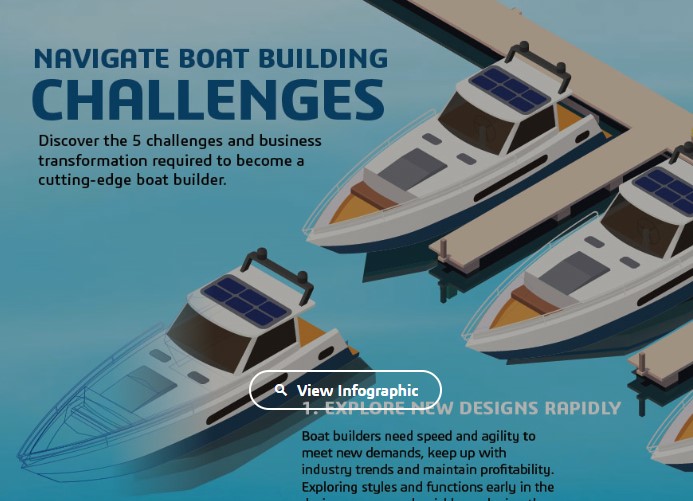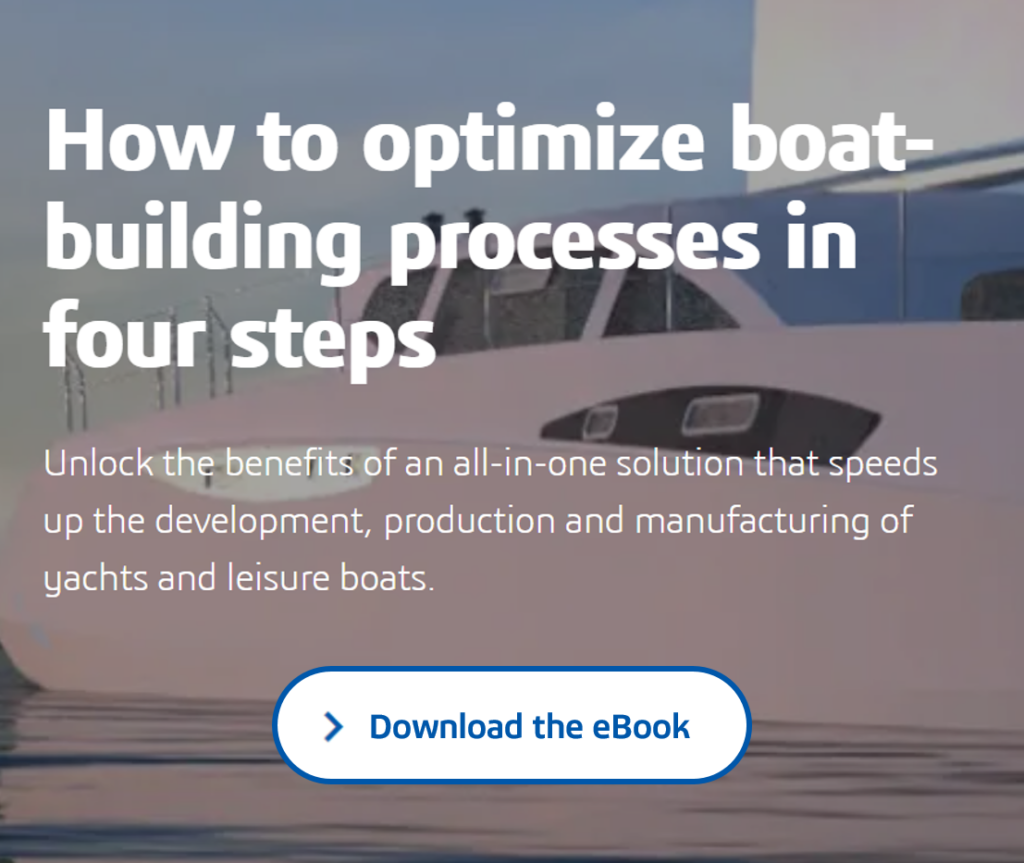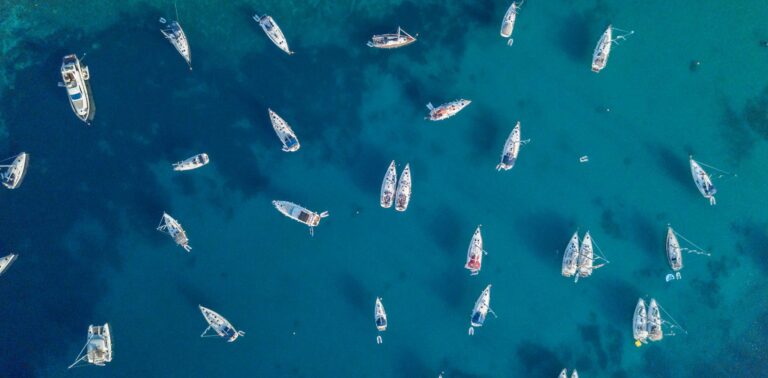As pressure intensifies for boat builders to do away with carbon intensive materials and production methods and reduce their reliance on fossil fuels, they must develop a new generation of leisure boat. Success relies on their ability to innovate and master the innate complexity that comes with integrating new technologies and materials.
Keeping pace with sustainable consumers and regulations
Around 40% of millennials are concerned about the environmental impact of their boats and 60% are interested in alternatively fueled recreational boats. They’re willing to pay more for sustainability too. In a McKinsey survey of recreational-boat buyers, up to 73% of consumers said they would be likely to opt for a more expensive, electric option over a boat with an internal-combustion engine.
Industry bodies such as the International Maritime Organization (IMO) – the United Nations (UN) agency responsible for regulating shipping and safeguarding our oceans – are also stepping up sustainability measures.
On World Oceans Day 2023, IMO highlighted what more needs to be done for the industry to reach its target of reducing carbon emissions by at least 40% by 2030 and phasing them out entirely by the end of the century. In the short term, the UN body encourages research and development activities focused on marine propulsion, alternative low-carbon and zero-carbon fuels, and innovative technologies to further enhance the energy efficiency of ships.
Swapping fiberglass and plastics for bio-resins
Until now, materials such as fiberglass, synthetic resins and virgin plastics have been popular choices in boat construction. Yet they are also among the most carbon intensive and polluting materials produced today. In Europe alone, over 250,000 metric tons of glass fiber is sent to landfill. Exciting breakthroughs in recyclable bio-resins promise to change that.
Natural resins using hemp, basalt and flax fibers are just some of the innovations making their way into the latest vessel prototypes. These recyclable fibers perform as well as more traditional materials in terms of durability, lower density and vibration control. They are also nontoxic and require far less energy to produce: their carbon footprint is up to 80% less than that of glass fiber.
Meanwhile bio-resins used for bonding in boat construction and other areas of manufacture, such as laminating yacht decks, have a 50% lower carbon footprint and consume half the amount of energy and water than an average non-bio-based resin. What’s more, these materials can all be repurposed and recycled back into the boat building industry when the lifespan of a vessel has run its course.
However, because these new materials don’t possess the exact same characteristics as carbon or glass fiber, boat builders need to be able to test bio-resins on the virtual twin at an early design stage. This allows designers and engineers to make the right choices and trade-offs. A combined modelling and simulation solution also helps bridge the gap between design and simulation to optimize the use of these new materials.

The rise of alternative propulsion
Electric and hybrid propulsion technologies are already appearing on leisure boats and yachts as battery technology continues to catch up with boating’s higher-load requirements. It’s leading to rising demand to convert existing vessels to electric propulsion, which involves replacing or retrofitting existing propulsion systems with electric motors, batteries and associated control systems. The specific installation process and feasibility depends on the boat’s size, design, and available space for battery storage. Specialized marine electric conversion companies handle these assessments, select appropriate equipment, and carry out the conversion process.
A unified digital platform facilitates this complex task by supporting seamless collaboration between different stakeholders, bringing them together around a unified digital model. This way, it becomes easier to visualize the integration.
To further improve energy efficiency, leisure boats are also being fitted with solar panels and wind generators. A renewable source of energy, marine solar panels are proving cost effective and reliable. Well suited to life at sea, they are highly durable and, unlike a generator, produce no excess heat or sound pollution, creating a positive experience for both passengers and the planet.
Digitalizing boat development
As green credentials move higher up the agenda, boat and yacht builders will need to tap into digital technologies to make their product development processes more efficient and support them to bring innovative vessels to market faster. The ever-growing boat building ecosystem, involving a large number of internal and external stakeholders, generates vast amounts of information and requires everyone involved to work and collaborate in the same environment, synchronize tasks, and seamlessly move from the design to the construction phase. Using the Sea Boat Builder industry solution on the 3DEXPERIENCE platform helps them to work closely in real time and maximize productivity throughout each project.

Leisure boat and yacht builders will also need to create completely sustainable vessels from the ground up and monitor and measure their environmental impact throughout their entire lifecycle. Lifecycle assessment (LCA) solutions such as Sustainable Innovation Intelligence on the 3DEXPERIENCE platform provide the capabilities to do just that. It allows boat builders to identify the most sustainable materials, evaluate the environmental implications of every component, measure energy consumption in manufacturing processes and take responsibility for the end of life of every vessel as the world moves towards a circular economy.
The inevitable shift to a decarbonized marine industry means that it’s now up to boat builders to demonstrate they’re tackling sustainability from all angles, covering every stage of the product development lifecycle. Early action presents an opportunity to gain an edge over the competition and win new customers and investors while becoming more resilient to increasingly stringent regulations and carbon taxes. Powered by the 3DEXPERIENCE platform, they can do just that – and potentially reinvent the entire notion of recreational boating in the process.
Become more agile, responsive and competitive in boat building with the 3DEXPERIENCE all-in-one collaborative platform.
